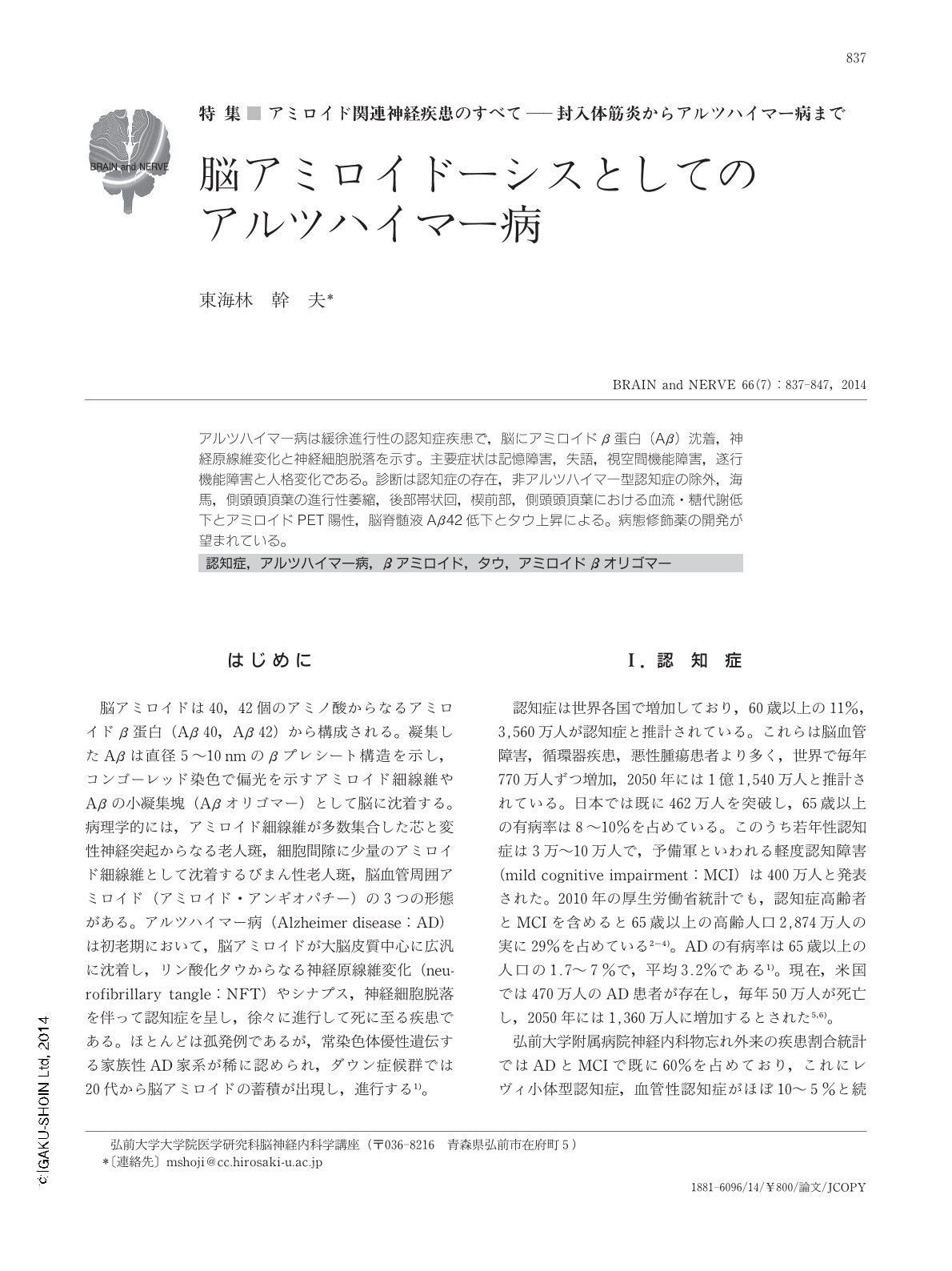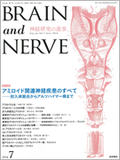Japanese
English
- 有料閲覧
- Abstract 文献概要
- 1ページ目 Look Inside
- 参考文献 Reference
アルツハイマー病は緩徐進行性の認知症疾患で,脳にアミロイドβ蛋白(Aβ)沈着,神経原線維変化と神経細胞脱落を示す。主要症状は記憶障害,失語,視空間機能障害,遂行機能障害と人格変化である。診断は認知症の存在,非アルツハイマー型認知症の除外,海馬,側頭頭頂葉の進行性萎縮,後部帯状回,楔前部,側頭頭頂葉における血流・糖代謝低下とアミロイドPET陽性,脳脊髄液Aβ42低下とタウ上昇による。病態修飾薬の開発が望まれている。
Abstract
Alzheimer's disease is a slowly progressive dementia that is characterized by Aβ amyloid aggregation, neurofibrillary tangles, and neuronal death. The major clinical symptoms are memory disturbance, aphasia, visuospatial disturbance, disturbance of executive function, and behavioral changes. Diagnosis is defined by the presence of dementia, the exclusion of non-Alzheimer type dementia, progressive atrophy of the hippocampus and temporoparietal cortex, decreased blood flow and glucose metabolism in the posterior cingulate gyrus and precuneus, decreased levels of Aβ42, and increased levels of tau in the cerebrospinal fluid accompanied by positive amyloid proton emission tomography. The development of disease modifying drugs is desired.

Copyright © 2014, Igaku-Shoin Ltd. All rights reserved.


